The Crown and the law: why Netflix is allowed to take liberties with the truth
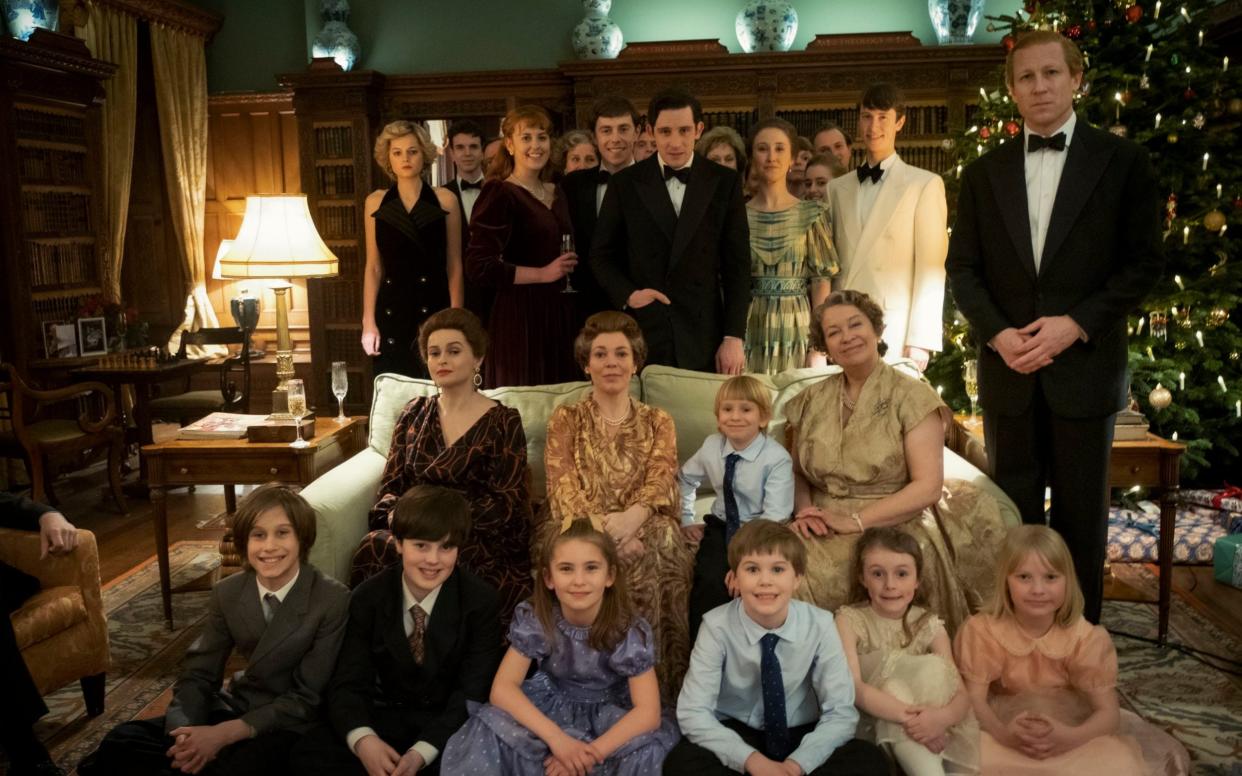
- Oops!Something went wrong.Please try again later.
It used to be the case that history was written by the victors. These days, history’s in the hands of the screenwriters. And as TV starts plundering very recent events to entertain an increasingly worldwide audience, it feels like we’re changing what actually happened purely for dramatic effect.
Take the doughty Olivia de Havilland, who – showing a delicate sense of irony – concluded her surprisingly active legal life in 2018, just two years before she concluded her actual life, when she sued Ryan Murphy over his mini-series Feud: Bette and Joan.
She maintained that Catherine Zeta-Jones’ portrayal of her behaviour in Hollywood’s bitchiest battle constituted unauthorised use of her name and likeness and showed her in “a false light” as a hypocrite “with a public image of being a lady and a private one as a vulgarity-using gossip.”
And yet Feud was just an eight-episode recreation of an argument. If that was outrageous enough to reach for the lawyers, Netflix Royal drama The Crown has produced 10 episodes and so far pinned every one of the seven deadly sins and most of the 10 commandments on the Royal family. No wonder so many viewer have been left asking the same question: how do they get away with it? Culture Secretary Oliver Dowden has even called for Netflix to add a disclaimer to the show, telling viewers that it is fiction.
This is especially pressing with at least one more officially announced series to go, the Queen reaching 95 in February and Prince Philip hitting 100 in June. It is possible that this show becomes, for millions of people, the defining account of Queen Elizabeth’s reign. That's certainly a concern for Princess Diana's brother, the Earl of Spencer. "The worry for me is that people see a program like that and they forget that it is fiction," he said recently. "They assume, especially foreigners, I find Americans tell me they have watched The Crown as if they have taken a history lesson. Well, they haven’t."
Should that be allowed? Doesn’t the Queen get a say in how she’s remembered? Whatever happened to the authorised biography? The truth is, despite those irritating people in the pub who stop half way through a good anecdote and say, hey, buy the rights, there’s no legal block anyone telling anyone else’s life story in any way they choose.
“Under the law in the UK, individuals don’t own the rights to their life stories and there’s nothing to stop anyone making a film about you provided you do so within the laws of defamation and privacy,” explains Leo Dawkins, partner at media specialist legal firm Lee & Thompson. If Netflix want to make a series about the Queen – or, indeed, about your tragic dating life – there’s nothing to stop them.
Hence Samantha Barbash, the real-life inspiration for Jennifer Lopez’s character in Hustlers, losing her legal action against the film’s producers for using her likeness. Barbash also stumbled over Dawkins' two qualifications – defamation and privacy – mainly because she’d served time for the events depicted in the film and had published an autobiography.
The Queen, of course, is not Barbash. She may not have the rights to her own life story, but the Royal family does have a right to privacy and a right to their good name, as long as they are alive.
Standard legal advice for filmmakers covers five main points. The first is to write your script about someone who is dead. In the UK, you can only defame the living. Thus it’s possible for Peter Morgan to say pretty much anything he likes about Princess Margaret, Winston Churchill and the Queen Mother without any fear of legal retribution.
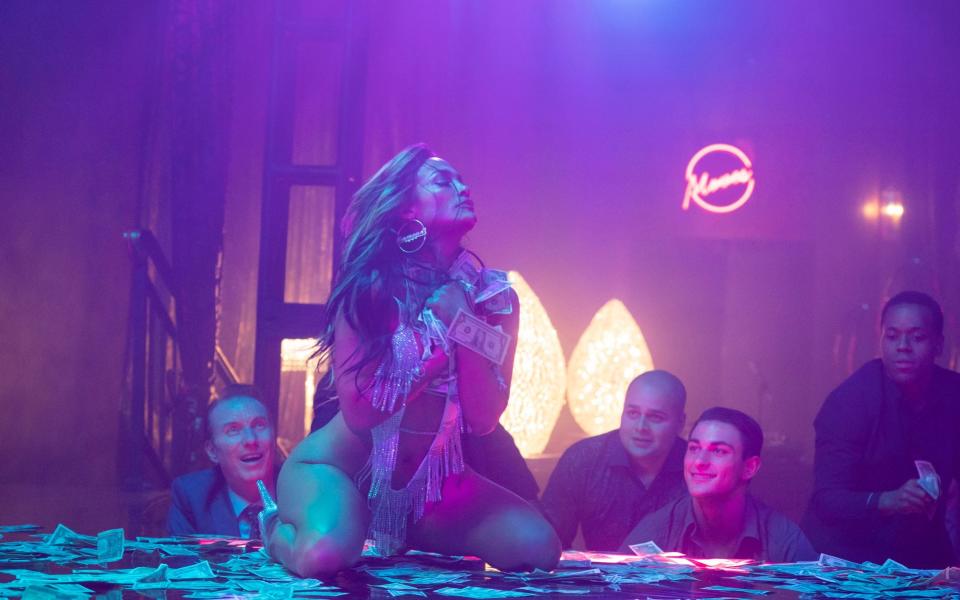
Jodi Tyne, whose husband Billy was the fishing captain at the heart of Sebastian Junger’s book and then George Clooney’s movie the Perfect Storm, discovered this the hard way. Mrs Tyne sued Warner Brothers for making her late husband look "unseaworthy, emotionally aloof, reckless,” and “excessively risk-taking" but her suit was dismissed in 2004 when a judge ruled that no law prohibited filmmakers from making up events.
The second is to involve the person you’re writing about and get them to sign off on the story. Under UK law the only person who can bring a claim is the person the piece is about. Jeff Pope, who wrote the Oscar nominated Philomena and specialises in real life dramas about, amongst other things, Ronnie Biggs wife Charmian and murdered 11 year old Rhys Jones’ mother Mel, usually explains his work by saying “with a documentary, what you’re trying to do is to take a simple story and make it appear complicated. With a drama you’re doing the opposite.”
Pope befriends his subjects and works with them, ensuring they’re happy with the script and the final edit. So far this has worked, although there’s always the risk of carelessly tweaking an incidental character. The producers of Titanic besmirched the reputation of a Scottish officer called William Murdoch by showing him shooting at passengers in panic – something someone else entirely did. After Murdoch's family pointed out that their ancestor was a hero who gave away his own lifejacket, the producers gave $5,000 (£3,500) to a fund in Murdoch's name.
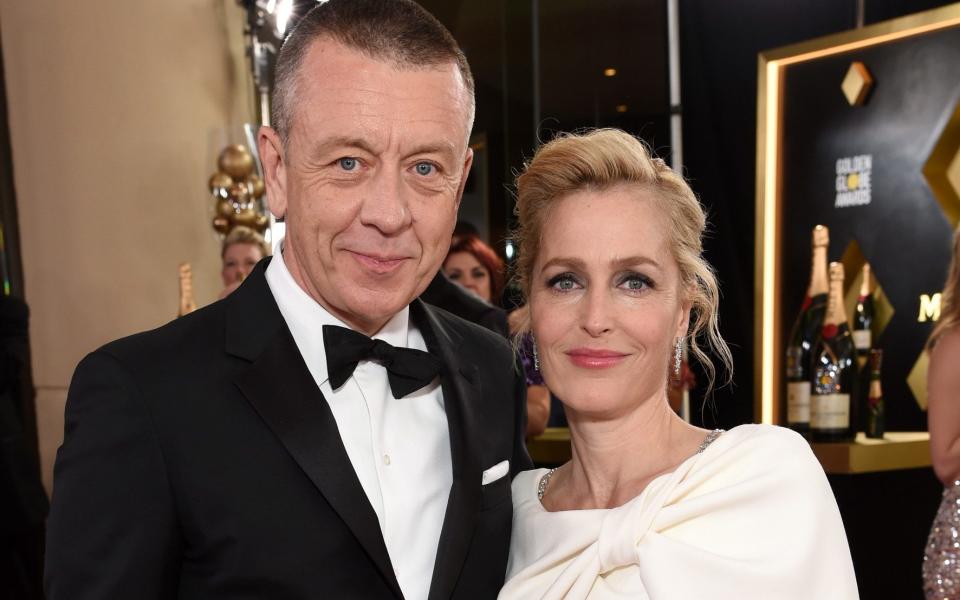
Peter Morgan’s method is different. He has a research team of eight combing official records, biographies and newspaper reports whilst he – so connected post The Crown’s success that he dines with everyone from friends of Princess Margaret to serving prime ministers – picks up insider information and then tallies the two. He is clear that he nudges events for dramatic effect – including, for instance, a letter to Prince Charles from Lord Mountbatten which is shown reaching the Prince shortly after the IRA bombed Mountbatten’s boat in 1979.
“I think everything that's in that letter that Mountbatten writes to Charles is what I really believe, based on everything I've read and people I've spoken to, that represents his view,” Morgan said recently. "We will never know if it was put into a letter, and we will never know if Charles got that letter before or after Mountbatten's death, but in this particular drama, this is how I decided to deal with it."
This should fall under the third point – fact verify. Even if you’re outrageously rude about someone, you can always fall back on saying it’s the truth. Relying on insider stories, however, means it’s very hard to prove you’re telling the truth. When Aaron Sorkin wrote the Social Network, he portrayed Facebook founder Mark Zuckerberg as callow, socially inept, insecure, romantically unsuccessful and desperate to prove his success to an ex-girlfriend.

Just as friends of Prince Charles are speaking out over season four of the Crown, so Zuckerberg’s friends publicly criticised the movie, claiming it was not true. Sorkin didn’t have to prove himself in court, however, as Facebook took the high road and merely issued a statement saying “They do a wonderful job of telling a good story. Of course, the reality probably wouldn’t make for a very fun or interesting movie.” It didn’t stop staff at the company’s headquarters buying two theatre’s worth of seats to view an early screening.
On November 13 , friends of Prince Charles accused Netflix of "trolling on a Hollywood budget" and exploiting the Royal Family's pain for financial gain. So furious were his closest confidantes that they actually raged, insisting that 'fiction is presented as fact' and insisting that a disclaimer be added stating this is a drama not a documentary.
“One of the issues with the Crown, or any fictionalised dramatization, is that viewers are more likely to believe that it’s all true if its grounded in real events,” Dawkins agrees. “If 80 per cent of the show is true but they make 20 per cent up to make it more interesting, you’re more likely to think the 20 per cent is true. The job of the programme maker is to make sure that if they make stuff up, they’re comfortable with the risk.”
Would a disclaimer help Netflix if the Royal family sued for libel? “Showing a warning at the top of the show is not a get out of jail free card but it might alter the viewers reasonable understanding of the programme,” Dawkins concludes.
This fits with the fourth pillar of biopics - take a commercial approach to risk. When Universal took an option on Madonna biopic script Blonde Ambition, the singer insisted the draft was “all lies”. Madonna has a sufficient chunk of change to settle in for a protracted legal battle, so the film quietly vanished. She’s now co-writing and directing her own version of events. There’s no previous examples of the Royals suing for libel, although the Queen, Prince Charles, Princess Diana, Prince William and Prince Harry, have all taken the press to court over privacy.
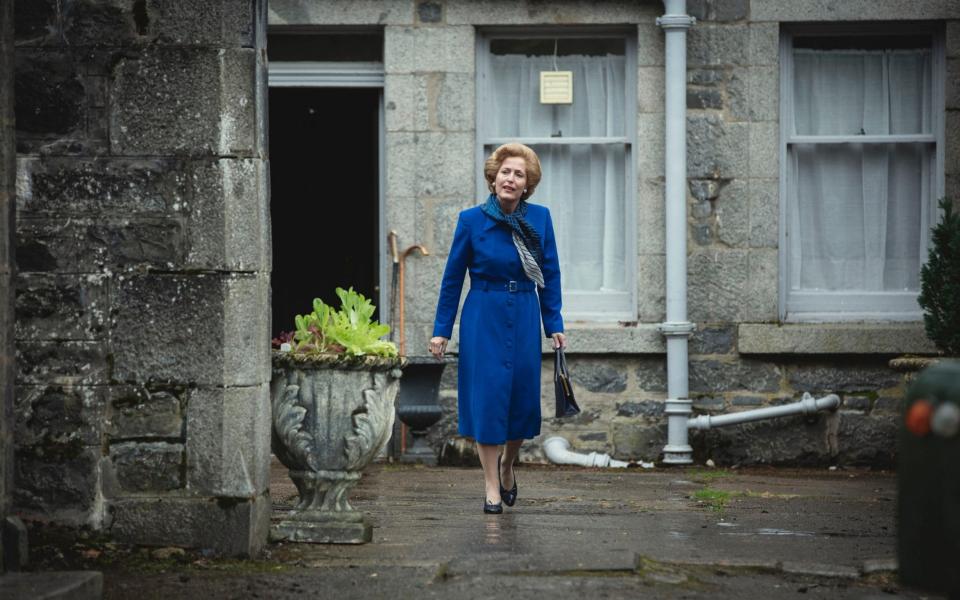
Could the palace make an exception this time round? After all, when Ingrid Seward, editor-in-chief of Majesty magazine, insisted the scene where the Queen allows Mrs Thatcher to be humiliated on a deer stalking mission was unfair she added "the Queen does not like humiliating people. It simply in a million years couldn’t be further from the truth."
This challenges the final principle - if it’s not true, make sure it’s not defamatory. But – speaking of insider information - my brother worked as a footman at Buckingham Palace during the latter half of this series – we understand his recruitment via an ad in Hotel & Caterer is unlikely to appear – and if his stories are even half true the show is letting the Royals off lightly.
Left alone in the family dining room at lunch – new servants, at least in those days, would sit in on small family-only meals to acclimatise them to serving royalty – he was alarmed when the head of state asked him to get her some grapes from a nearby table. Prince Philip moved fast and by the time my brother arrived he was proffering an orange. Certain only that he couldn’t say no to a member of the Firm he shambled awkwardly towards the Defender of the Faith. But it was grapes she wanted, she cried.
My brother headed back, to find Philip pressing an uncut melon into his sweating hands. It is very funny to me, to think of him gloomily heading towards Queen Elizabeth the Second grasping a full honeydew, arguably the least grape of all the fruits.
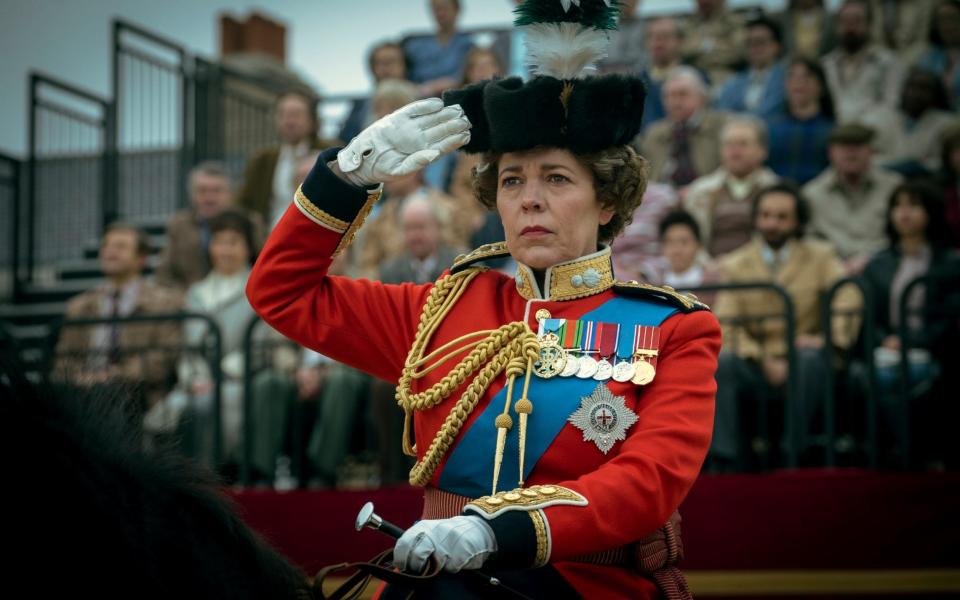
As he turned back to the table to see Philip gleefully waving a pineapple at him, he assumed this was his first and final day in knee britches and a tailcoat. Fortunately, a senior steward arrived and settled things down.
To be fair, for the Royals servants aren’t like waiters – they’re more like video recorders. They do the job and that’s what they do. So perhaps the truth is that the Crown casting sensitive Olivia Colman as the Queen presents the Royals in a warmer, more favourable light than the harsh reality of a household where everyone is so used to servants responding to their every whim that no-one – except Prince Charles – said thank you to my brother during his time there?
Either way, the courts aren’t the ideal place to thrash things out. Just like a painful divorce, they’re usually best resolved by a quiet chat. Which is something the Royal family are far better placed to do than you if Netflix decides to make a show about your life. They have a navy, for one thing, but they also have decent contacts right at the heart of the organisation – Harry and Meghan have a lucrative development deal with the streamer, after all. Although Peter Morgan would probably get an entire episode out of her majesty making that call. And there’s literally nothing to stop him.

